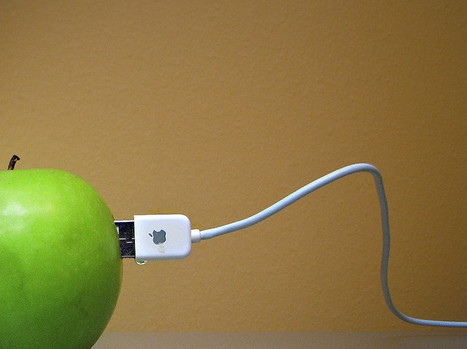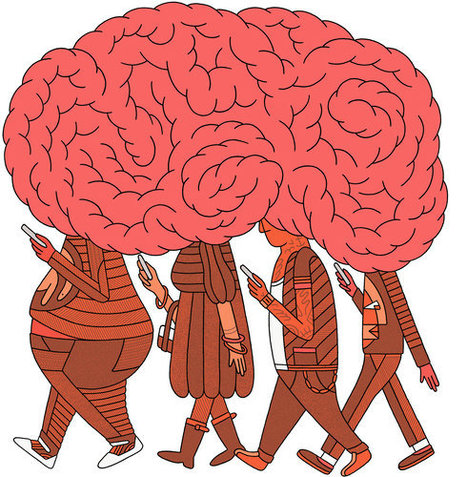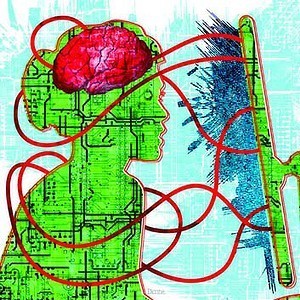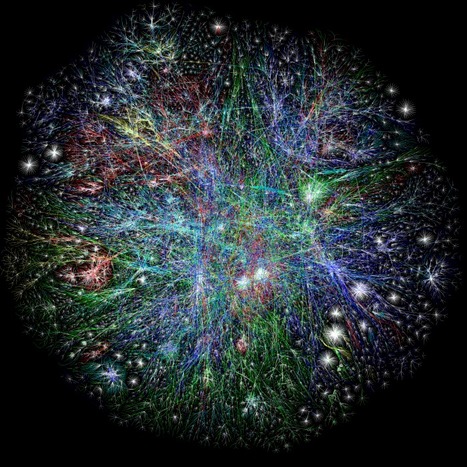 Your new post is loading...
 Your new post is loading...

|
Scooped by
Sakis Koukouvis
January 3, 2013 4:30 AM
|
A video info graphic that compares the internet today to 10 years ago.

|
Scooped by
Sakis Koukouvis
December 1, 2012 5:27 PM
|

|
Scooped by
Sakis Koukouvis
October 14, 2012 10:09 AM
|
Our long history with the Internet is causing us to lag behind other countries. But maybe there's another way.

|
Scooped by
Sakis Koukouvis
September 30, 2012 3:03 PM
|
The researchers, Monica Ortiz, a doctoral candidate in bioengineering, and Drew Endy, PhD, an assistant professor of bioengineering, have parasitized the parasite and harnessed M13’s key attributes — its non-lethality and its ability to package and broadcast arbitrary DNA strands — to create what might be termed the biological Internet, or “Bi-Fi.” Their findings were published online Sept. 7 in the Journal of Biological Engineering.

|
Scooped by
Sakis Koukouvis
August 15, 2012 6:19 PM
|

|
Scooped by
Sakis Koukouvis
August 7, 2012 5:31 PM
|
A perfect storm engenders online rudeness, including virtual anonymity and thus a lack of accountability, physical distance and the medium of writing

|
Scooped by
Sakis Koukouvis
July 3, 2012 1:43 PM
|
Girls who spend more time updating pictures, chatting and surfing the Internet are more likely to suffer from negative body image and low self-esteem, says a new study.

|
Scooped by
Sakis Koukouvis
June 15, 2012 5:33 PM
|
In a 1934 book titled, The Treaties on Documentation, Belgian entrepreneur Paul Otlet conceived of a system for requesting and retrieving massive amounts of information. Calling it a “radiated library,” Otlet’s device would allow users to retrieve all the world’s information—books, magazines, film, music—with a single phone call. Did he invent the Internet? Here, Alex Wright, director of user experience at The New York Times and discoverer of Otlet’s lost opus, explains at the 2012 World Science Festival program, Internet Everywhere, just how close Otlet had come to creating the world’s first information-networking system.

|
Scooped by
Sakis Koukouvis
May 28, 2012 4:52 AM
|
One of the greatest effects of the Internet is its ability to capture our attention only to scatter it, ultimately producing a generation whose brains are being better hardwired to scan, skim and multitask, causing a weakening in our ability to read and think deeply in a concentrated manner.

|
Scooped by
Sakis Koukouvis
May 17, 2012 6:03 PM
|
In a new study analyzing Internet usage among college students, researchers at Missouri University of Science and Technology have found that students who show signs of depression tend to use the Internet differently than those who show no symptoms of depression.
More on DEPRESSION: http://www.scoop.it/t/science-news?tag=depression
HAVING helped spread the internet's tentacles across the globe, boffins are now thinking of extending them further.
Via Wildcat2030
"Hunched over our computers, communicating as disembodied blobs, we’re suffering a dearth of empathy transference. We’re little islands of one, free from the experience of stepping into another’s shoes, truly feeling what they’re feeling, and understanding where they’re coming from." Articles about EMPATHY: http://www.scoop.it/t/science-news?tag=empathy
Via Edwin Rutsch

|
Scooped by
Sakis Koukouvis
April 24, 2012 10:11 AM
|
Himelboim found out that as the discussion group became larger, just like in offline life, they also became more hierarchical. People exhibit what’s called a preferential attachment toward those with many connections, which suggests that having many connections makes it easier to make more connections. For those having fewer connections, making new connections will be more difficult. Hence, the internet seems to foster inequality.
|

|
Rescooped by
Sakis Koukouvis
from Ed-Tech Trends
December 14, 2012 2:36 AM
|
The world wide web has become significantly more worldwide over the past two decades. By 2010, more than 2 billion people--or about one-third of the global population--had access to the internet, up from something like .05 percent in 1990, and less than 10 percent of users worldwide now reside in the U.S. As seen in this visualization two big trends are evident: the geographical diversification of the web, and China's sudden expansion and global dominance as an internet presence... Further information explaining these trends comes from Google's public data tool. Take a look at the additional charts at the link--the first shows the relative proportion of internet users by country, and the second shows each country's total number of users.
Via Lauren Moss, Bronwyn Desjardins

|
Rescooped by
Sakis Koukouvis
from Neuroscienze
October 24, 2012 1:55 AM
|
Neuroscientists have traced circuits in part of the rat brain and find no sign of a top-down hierarchy. The distributed network of the Internet may be a better model, they say.
Via Flavio Bernardotti

|
Scooped by
Sakis Koukouvis
October 7, 2012 8:14 AM
|
The media has been buzzing with the supposed news that ‘internet addiction’ has been added to the list of ‘official mental disorders’. This is nonsense, but it tells us something oddly disappointing about how the media handles tech scare scores.

|
Scooped by
Sakis Koukouvis
August 22, 2012 1:08 PM
|

|
Scooped by
Sakis Koukouvis
August 8, 2012 1:31 PM
|
No one can remember everything, and the Web can be a great mind-expanding device.
Sydney Morning HeraldHow digital culture is rewiring our brainsSydney Morning HeraldOur brains are superlatively evolved to adapt to our environment: a process known as neuroplasticity.
Via Tom Perran

|
Scooped by
Sakis Koukouvis
June 18, 2012 3:11 AM
|

|
Scooped by
Sakis Koukouvis
May 29, 2012 12:36 PM
|
A Russian anti-virus company has discovered the most complex computer virus in cyber warfare history. Called "Flame", the company says the virus has been targeting computer systems in the Middle East, such as Iran's Oil Ministry, for at least two years.

|
Scooped by
Sakis Koukouvis
May 24, 2012 2:58 AM
|
The Internet has revolutionized the way we connect and the way we think, speeding up the rate of virtually everything. At times, having so many facts at your fingertips can feel less like an upside and more like a deluge. (There's a reason why Gleick's book is subtitled "a flood.") But fundamental cultural and technological shifts in our relationship to information are hardly unprecedented. They're "part of the evolution of the species," he says.

|
Scooped by
Sakis Koukouvis
May 12, 2012 10:17 AM
|
The electro-type, the Electro Sapien, will expand conscious access to brain realism, merge — through miraculous data crunching — our insipid linear perception of reality with actual multidimensional reality. He will abstract linear thinking, see and analyse in greater detail the sapient mass of present time. He will feed on vision and memory connectivity stored in all constructs of matter, and harness integration of individual electric signatures with the internet’s electric signature. He won’t fear death, nor personal identity dissolution and insignificance.

|
Scooped by
Sakis Koukouvis
May 2, 2012 5:56 PM
|
Being online does change your brain, but so does making a cup of tea. A better question to ask is what parts of the brain are regular internet users using.

|
Scooped by
Sakis Koukouvis
April 30, 2012 5:20 PM
|
Despite all the attention the Internet receives for supposedly causing social isolation, there may be a bigger cause right under our noses: automobile traffic.
|

 Your new post is loading...
Your new post is loading...
 Your new post is loading...
Your new post is loading...










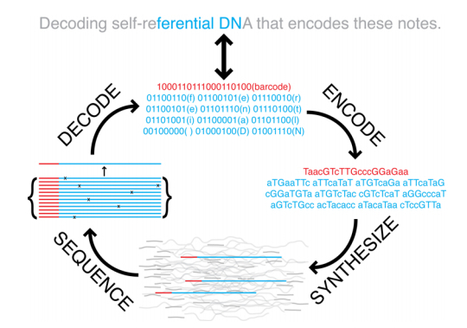
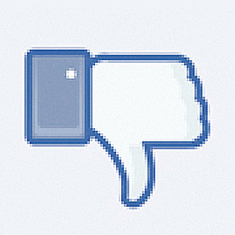


![[VIDEO] Invention of the Internet in 1934? | Science News | Scoop.it](https://img.scoop.it/v2m4yfWdLdViv6CTGuBUBTl72eJkfbmt4t8yenImKBVvK0kTmF0xjctABnaLJIm9)
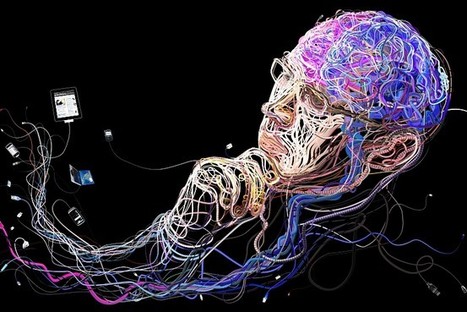





![How The Internet Has Spread Around The World [Infographic] | Science News | Scoop.it](https://img.scoop.it/UQ7EvFapsviLNLtr0Z0e3zl72eJkfbmt4t8yenImKBVvK0kTmF0xjctABnaLJIm9)

